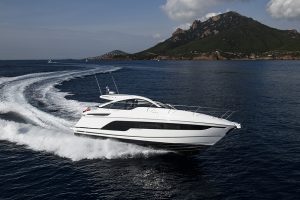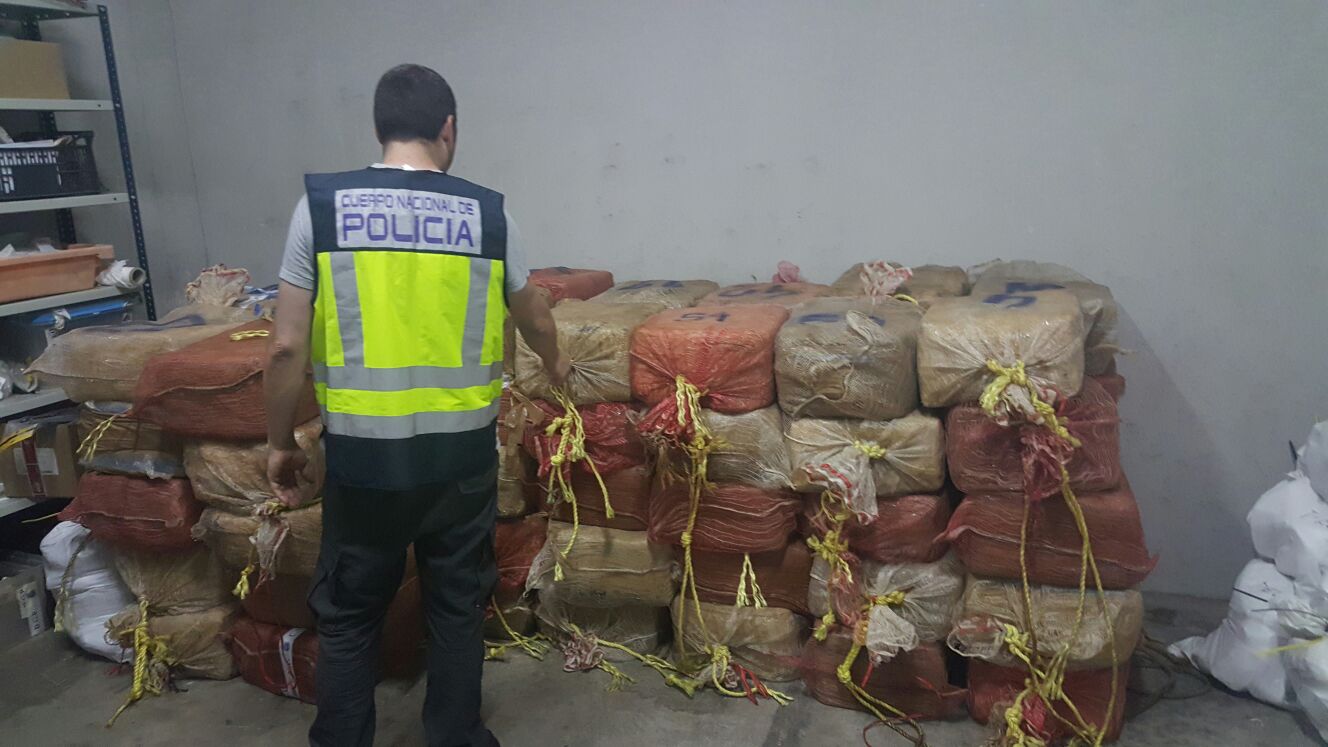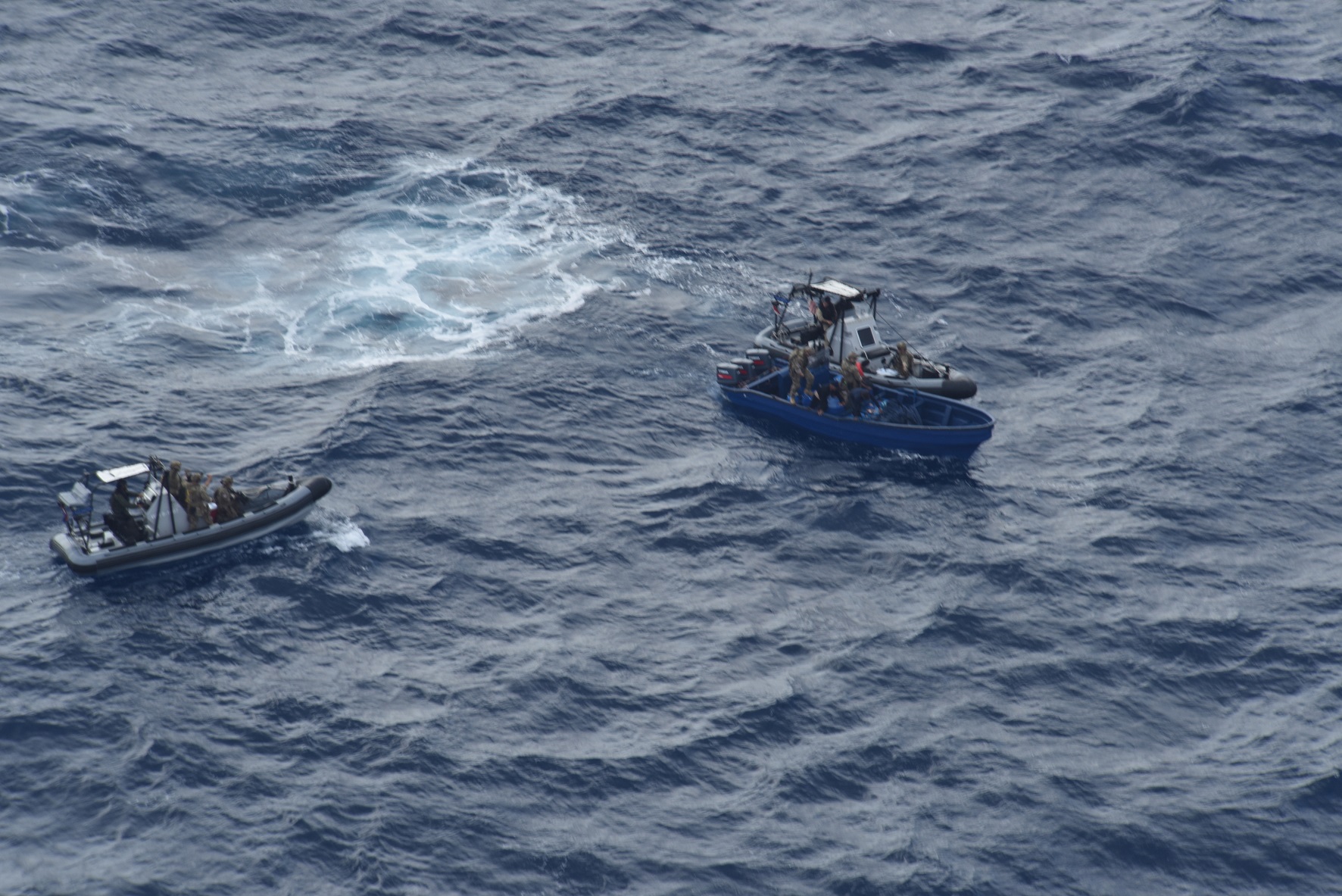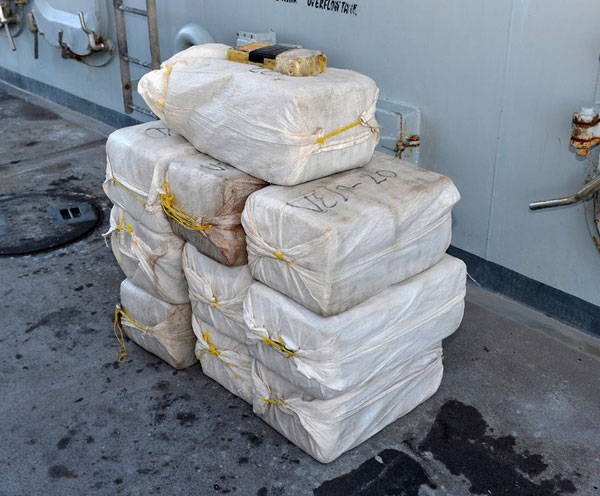Royal Navy seizes £65M of heroin and cannabis in Indian Ocean
The packets of heroin and cannabis, with an estimated street value of £65 million, were found hidden in the freezer of a dhow in the Indian Ocean by the crew of the Royal Navy frigate, HMS Monmouth
The Royal Navy says the crew of the frigate, HMS Monmouth, have seized £65 million of heroin and cannabis from a suspect vessel in the Indian Ocean, dealing a major blow to the funding of terrorism.
Sailors and Royal Marines from the Type 23 frigate destroyed 455kg of cannabis and 266kg of heroin after finding it hidden in the freezer of a fishing boat.
The suspicious dhow – a type of vessel common to the Middle East and Indian Ocean – had been spotted by the ship in an area not normally known for fishing.
Swooping into action before the smugglers could destroy any evidence, HMS Monmouth sent two boarding teams in fast rigid inflatable boats to intercept the dhow.

The recovered drugs. Credit: Royal Navy
The teams were made up of Royal Marines from 43 Commando Fleet Protection Group and other Royal Navy search specialists.
The teams spent 60 hours painstakingly scouring the vessel for narcotics.
After removing three tonnes of ice from a freezer on board, a hidden compartment was found, in which the dhow’s crew had hidden the 266kg of pure heroin and 455k of cannabis resin with a total street value in the UK of around £65 million.

HMS Monmouth and the suspicious dhow. Credit: Royal Navy
One of HMS Monmouth’s boarding officers, Lieutenant Alison Ross, said: “After such a long search I had doubts we would find anything, but the reactions of the crew to our activity in certain areas was enough to convince us that there was illegal cargo.”
Continues below…
2.4 tonnes of cocaine intercepted in the Atlantic Ocean
The drugs, worth around £100 million wholesale, were found on a South American fishing vessel around 1,200 nautical miles south…
Dutch Navy seizes 700kg of cocaine in two busts in the Caribbean
Nearly 700kg of cocaine has been seized by the Royal Netherlands Navy in 48 hours in two separate drug busts…
Fishing boat skipper sentenced to 16 years for attempting to smuggle a tonne of cocaine into the UK
Michael McDermott is now starting a 16 year jail sentence after he was found guilty of attempting to smuggle cocaine,…
“Eventually the breakthrough was made and we could bring the operation to a close, having successfully put a stop to the progress of the drugs,” she added.
Once all the drugs had been photographed by the Royal Navy Police on board HMS Monmouth, the packages were disposed of in the sea ensuring no profits can be made from them.

HMS’s Monmouth’s Wildcat in action during the operation. Credit: Royal Navy
Commenting on the drug bust, HMS Monmouth’s Commanding Officer, Commander Ian Feasey, said: “Such a substantial seizure of drugs will deal a significant blow to the international narcotics trade which is known to provide funding for terrorist organisations.”
“I am extremely proud of the professionalism, diligence and perseverance of my boarding team to achieve a result in such arduous conditions. This has been an effort by the whole ship’s company and their efforts speak volumes about the Royal Navy’s ability and commitment to preventing illegal activity on the high seas,” he added.
HMS Monmouth will now continue her patrols of the Indian Ocean as part of Combined Task Force 150 (CTF150), a coalition of warships with a mission to promote maritime security in order to counter terrorist acts and related illegal activities, which terrorists use to fund or conceal their movements.

The two teams approach the suspicious dhow. Credit: Royal Navy
CTF150, which is currently being led by the French Navy, has now scored three major drugs busts in this month alone.
Earlier in May, Australian frigate HMAS Arunta pounced on a dhow and recovered 250kg of heroin.
That drug bust came hot on the heels of a double seizure of heroin by the French frigate Surcouf which brought in 400kg of heroin, worth around £120m on the streets.












